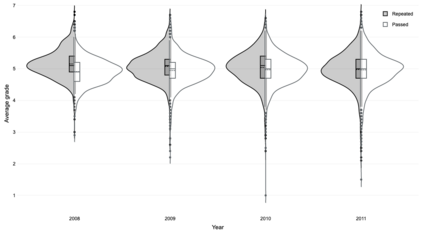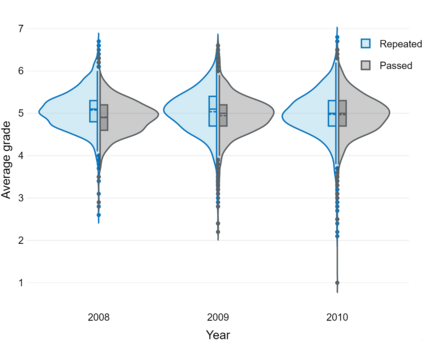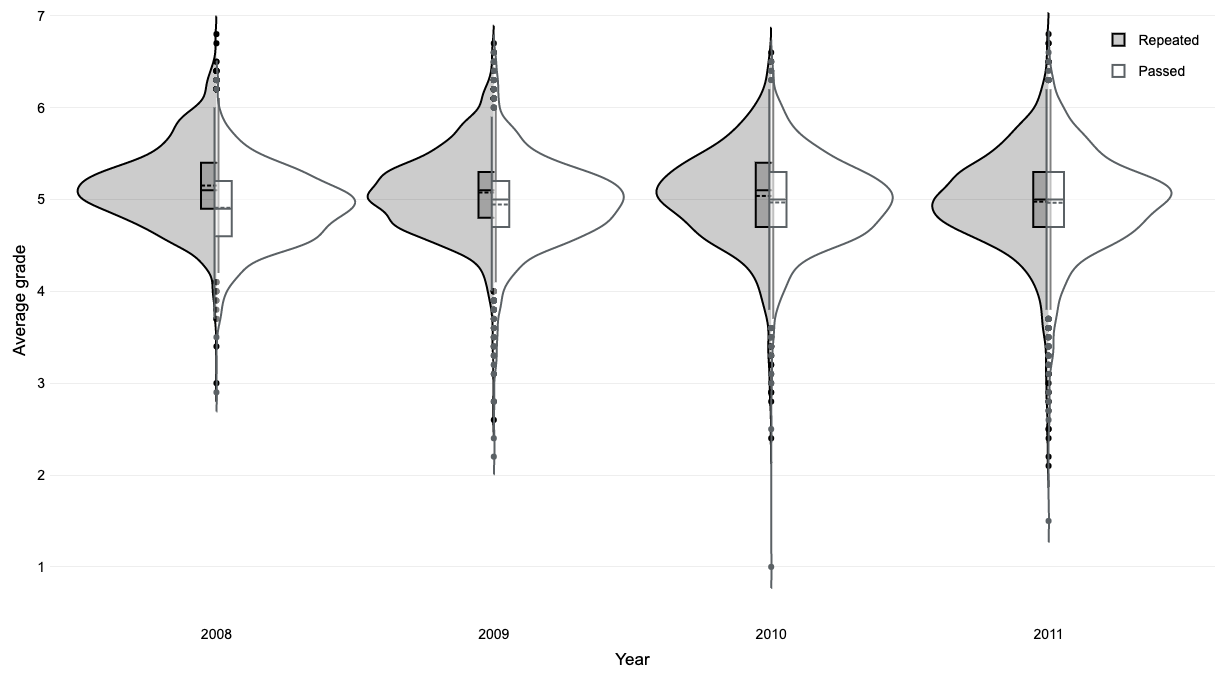Regression discontinuity designs are extensively used for causal inference in observational studies. However, they are usually confined to settings with simple treatment rules, determined by a single running variable, with a single cutoff. Motivated by the problem of estimating the impact of grade retention on educational and juvenile crime outcomes in Chile, we propose a framework and methods for complex discontinuity designs that encompasses multiple treatment rules. In this framework, the observed covariates play a central role for identification, estimation, and generalization of causal effects. Identification is non-parametric and relies on a local strong ignorability assumption. Estimation proceeds as in any observational study under strong ignorability, yet in a neighborhood of the cutoffs of the running variables. We discuss estimation approaches based on matching and weighting, including complementary regression modeling adjustments. We present assumptions for generalization; that is, for identification and estimation of average treatment effects for target populations. We also describe two approaches to select the neighborhood for analysis. We find that grade retention in Chile has a negative impact on future grade retention, but is not associated with dropping out of school or committing a juvenile crime.
翻译:在观察研究中,递减性不连续性设计被广泛用于因果关系推断,然而,通常局限于由单一运行变量决定的简单处理规则环境,仅用一个截断点来确定;由于估算等级保留对智利教育和青少年犯罪结果的影响的问题,我们提议了一个包含多种治疗规则的复杂不连续性设计的框架和方法;在这个框架内,观察到的共变体在确定、估计和概括因果关系方面发挥着核心作用;识别是非参数性的,并依赖于当地强烈的可忽略性假设;任何观测研究中的估算都是在严重忽视的情况下进行,但在运行变量的截断区附近进行;我们讨论基于匹配和加权的估计方法,包括互补的回归模型调整;我们提出一般化假设,即用于确定和估计目标人群的平均治疗效果;我们还介绍了选择邻区进行分析的两种方法;我们发现,智利的等级保留对今后的职等有负面影响,但与辍学或青少年犯罪无关。







